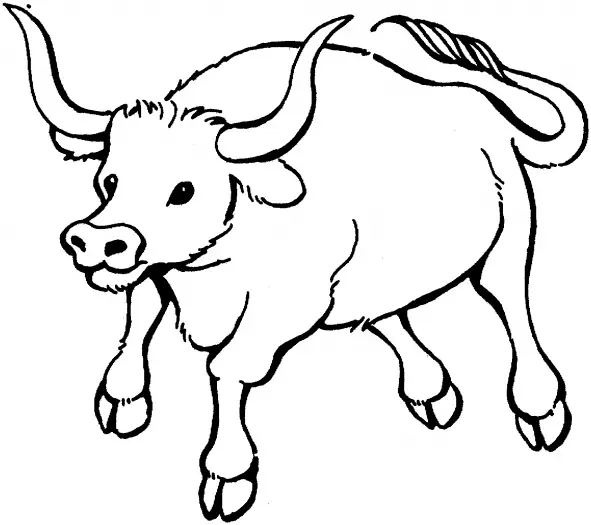
Earlier this month, financiers, bankers, and investors waited anxiously to see whether Turkey, having passed a law in 2013 to prevent the financing of terrorism, would be taken off the Financial Action Task Force’s (FATF’s) list of high-risk and noncooperative jurisdictions.
The result? Disappointing. Turkey will remain in uncomfortable company on the gray list of countries that the FATF, the G7-founded body charged with developing and implementing global standards to counter illicit financing, deems as having deficiencies in their efforts to combat money laundering and terrorism financing. The body was most concerned about Turkey’s weak framework for identifying and freezing terrorist assets — for example, its definition of «terrorism financing» is too narrow and its asset freezing procedure is too slow — and urged investors and other countries to think twice before diving in.
For Turkey, the blow of remaining on FATF’s gray list, where it has been listed since 2011, was all the more painful because both Kenya and Tanzania were removed from it, “due to their progress in substantially addressing their action plan agreed upon with the FATF.” Turkey had surely hoped that, with its new law and recent decision to freeze the assets of individuals and legal entities known to have links to al Qaeda and the Taliban, it would be treated likewise. It was not.
To be sure, the outcome could have been worse. Prior to the mid-February FATF session in Paris, there had been talk of downgrading of Turkey’s status from gray to dark-gray, a classification that no other country shares and that is just one step above the category in which Iran and North Korea reside. That was always unlikely. But for some, Kenya and Tanzania’s simultaneous rise in the ranking will be as insulting as an explicit downgrade for Turkey — after all, Turkey’s economy, banking sector, and geopolitical influence dwarf those of Kenya and Tanzania.
For Turkey, the blow of remaining on FATF’s gray list was made all the worse by the fact that both Kenya and Tanzania were removed from it.
But how did FATF come to label Turkey, a member of NATO, as high-risk and noncooperative in the first place? And how can Turkey possibly face the prospect of sliding toward the financial netherworld?
To appreciate FATF’s ongoing concerns, one needs to look back a couple of years. In 2007, FATF published its third annual evaluation of the country, which had been a member in good standing of the group since 1991. Among its major findings was the fact that, given the size of the Turkish economy, Turkish banks reported relatively few suspicious transactions. And the wider Turkish financial community reported none. Furthermore, the number of detected violations and convictions was low. FATF also found Turkish preventative measures wanting.
By 2010, frustrated by Turkey’s failure to react to the earlier report, FATF reiterated its concerns. Although Turkey had improved its anti–money laundering and counterterrorism financing regime, the report noted, certain “strategic deficiencies” remained. Namely, Turkey had neither sufficiently criminalized terrorism financing nor implemented an appropriate framework for identifying and freezing terrorist assets, the two standards that FATF deems as core requirements. By failing to address those problems, Turkey was potentially exposing foreign banks and investors to being associated with terrorism financing.
Over the next 18 months, FATF reiterated its advice that Turkey should improve its implementation of the two core requirements, and it grew increasingly discouraged by Turkey’s lack of resolve. It was in 2011 that the body added Turkey to its gray list of countries — those that had not made sufficient remedial progress, including Bolivia, Ethiopia, Kenya, Myanmar (also known as Burma, which, at that time, was still governed by a military junta and subject to international sanctions), Sri Lanka, and Syria. By placing Turkey on this list, FATF was drawing yet more attention to the risks, in its view, of financial dealings with the country and its banking system, particularly that any transactions could amount to the facilitation of illicit financing and result in international sanctions.
Turkey slid further in June 2012, when FATF explicitly called on the country to enact “adequate counter-terror financing legislation” noting that, if Turkey did not make sufficient progress by the next meeting in October 2012, FATF would call on its members “to apply countermeasures” to their dealings with Turkey. That would have likely curtailed inward investment and limited Turkey’s access to the international financial system. The threat was not idle; in October 2012, FATF announced that countries dealing with Turkey should take immediate steps “proportionate to the risks arising from the deficiencies associated with Turkey.” It also issued a final ultimatum that Turkey would be suspended from FATF in February 2013 if it did not shape up. In turn, several financial regulators, including the U.S. Treasury Department’s FinCEN (Financial Crimes Reporting Network),released advisories warning of FATF’s guidance.
Just one week before FATF’s deadline expired, the Turkish government enacted a new law on terrorism financing. It addressed many of the shortcomings that FATF had identified years earlier, including by creating the legal basis for the freezing of terrorist assets. The legislation came not a moment too soon. As Fitch, the credit ratings agency wrote following the signing of the new law, FATF suspension “could have disrupted access to financial markets for Turkish entities … [and] increased Turkey’s vulnerability to an external financing shock.” (Of course, just weeks before, Fitch had upgraded Turkey’s sovereign debt rating to investment grade, after nearly 20 years of listing Turkish debt as sub-investment grade.)
Any disruption to Turkey’s financial markets would have been especially difficult for the country in light of the U.S. Federal Reserve’s decision to taper its bond-buying program, which came a few months later. The Fed taper has put pressure on foreign-currency dependent economies and made financial markets increasingly volatile. If Turkey had lost FATF support, many investors would have likely fled in search of more stable opportunities. In addition, Turkish banks would have taken a hit, since inclusion on the dark gray list would have resulted in severe restrictions on transactions with European and U.S. banks.
A TROUBLING PLACE TO BE
Turkey might have avoided being downgraded or kicked out of FATF, but it is still in a troubling situation. The country’s domestic politics are in upheaval. And FATF continues to raise concerns. As the body has shown, moreover, it is not afraid to use its standing and influence to enforce better practices.
Turkey should expect its anti–money laundering and counter–terrorism financing regime to remain under intense international scrutiny. The country’s location allows it to be a crossroads for people and trade. Turkey, a member of NATO and sometime-EU-aspirant, is able to play an outsized role in geopolitics. Yet its position also makes it vulnerable. Its borders with Syria and Iran are appealing routes through which to circumvent the sanctions on Iran and to deliver materiel, money, and fighters to the conflict in Syria. Indeed, no recent theater of war has been easier for outsiders to join than Syria thanks to next-door Turkey’s global and low-cost air transportation infrastructure.
Turkey cannot hide from scrutiny. It must fully cooperate with international sanctions and standards. Turkey’s name continues to be linked too often to individuals, groups, and schemes — including Hamas and the so-called gas-for-gold scheme, which facilitated Iranian sanctions busting — that conflict with these standards. The U.S. Treasury Department recently identified a number of individuals and companies with links to Iran, some of which are based in Turkey. The extent of Ankara’s involvement in the dismantling of these operations will determine its standing with FATF and will demonstrate whether Turkey is cooperating with global financial objectives.
This year will undoubtedly be difficult for Turkey, given internal political turmoil and international market volatility. Along with Brazil, India, Indonesia, and South Africa, market commentators have identified Turkey as a member of the so-called Fragile Five economies that they believe are most at risk due to the Fed’s taper. Indeed, the Turkish central bank has already taken dramatic action, unpopular with Prime Minister Tayyip Reccep Erdogan, to boost the Turkish lira, which has lost about 30 percent of its value against the U.S. dollar in the past year.
But the fact that Turkey remains in FATF’s high-risk and uncooperative category is the most concerning point of all. FATF’s status quo decision will undoubtedly dent Turkish national pride and perhaps fuel domestic suspicions of malign foreign intentions. With strong headwinds blowing, however, Turkey can ill afford to lose the confidence of investors and the international financial system.
Filed under: Ξέπλυμα Χρήματος/Money Laundering Tagged: FATF, grey list, Turkey














